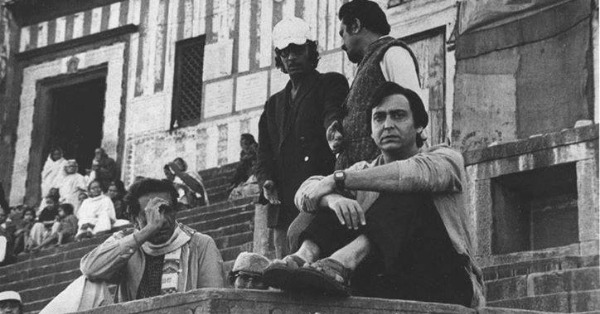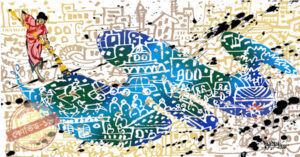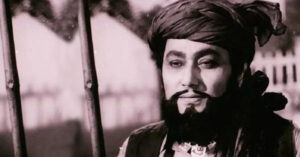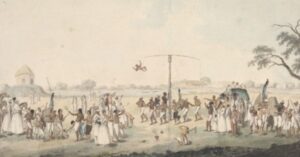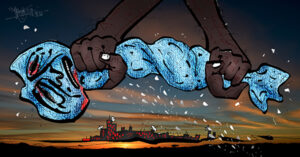What is your first memory of Satyajit Ray? Anything that struck you about his bearing?
As far as I can remember, Satyajit Ray was an overwhelming presence in our house. Even before I met him, I knew he was special. He was someone who was considered the guiding light in our family. When I was a child and then during my growing up years, my father was a self-proclaimed atheist. We didn’t observe any kind of Puja or ritual at home but one thing was for certain – in our house we worshipped Rabindranath Tagore and Satyajit Ray. So, I really can’t remember when I met him for the first time… he was always a part of our lives. I remember tagging along with my father to his Bishop Lefroy Road residence almost every Sunday. Manik Jethu, as I called him, had this remarkable quality of putting a child at ease. He never looked down on us neither did he indulge in silly baby talk or anything like that. He was genuinely interested in us and spoke to us like he would to any adult. He encouraged my interest in Bharatanatyam and would later be the Chief Guest at my Arangetram when I was just 12 years old. I found him gentle and kind… always ready to answer any question I had… never irritated by my innocent curiosity. The way he handled his child artistes in so many of his movies and brought out such memorable performances from them is an indication of how well he understood children and how genuine he was with them.
Equally, what was the first Ray film you saw? What are your memories of the film?
The first Satyajit Ray film that I saw was Goopy Gayen Baagha Bayen. I remember my parents taking me and my brother to watch the film but I don’t remember where. Before going to watch the film, my mother read out the Upendra Kishore Ray Choudhury short story from which the film was made. I was very young and to me, it was extremely exciting. I was especially enthralled by Bhooter Raja and the presence of Rabi Jethu, (Rabi Ghosh) who was a family friend, was thrilling to say the least. For days and weeks and even months after that, we kept on talking about the film… I chattered about the magic and the songs and Goopy Bagha’s adventures while my parents discussed the finer points and the deeper qualities of the film. I still watch GGBB whenever I can…. till date, it remains one of my favorite escape routes from all the hullabaloo around. We as a family still sing the songs of GGBB. The magic and the music has stayed with me till today and has been a bright light on many a dark, dismal day.
Soumitrada’s relationship with Ray is a theme that has been often discussed, particularly in recent months. What, according to you, made their collaboration so special?
My father acted in 14 of Satyajit Ray’s films – a phenomenal collaboration between a director and an actor – comparable to the collaboration between Akira Kurosawa and Toshiro Mifune. I think their collaboration was really special because in my father, I think Ray found an actor who could effortlessly blend into the character that he had envisaged. Bapi’s ability to “become” the character, his skill as an actor to get under the skin of the character, his hunger as an actor to portray different characters made him special. I feel that Ray could mould my father into a particular character and my father would completely surrender to Ray and then together, they would embark on a creative adventure. Another aspect that made their collaboration special was their love for literature. I think this shared passion for literature created a bond which reflected in their work.
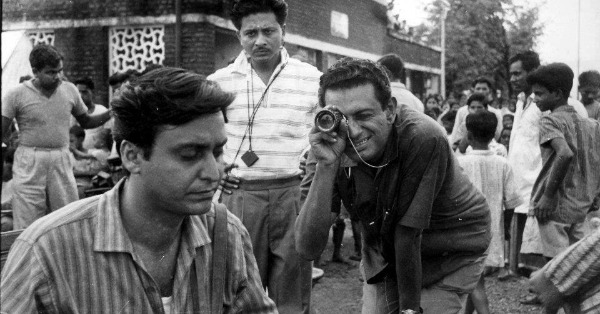
As an actor, what would your assessment of his performances in Ray films be? Though it’s a celebrated filmography, do you have some favourites that others don’t celebrate and discuss as much?
A. It would be too high-handed and arrogant of me to assess my father’s performances in Satyajit Ray’s films. I seriously don’t have the gumption to do that but I do love his performances in them, some more than the others. Like I said earlier, my father was a hungry actor. Till his last days he was hungry for different characters. He would embrace a character wholeheartedly and make the character a part of himself. He was a very hard-working actor and did his homework diligently before any film started. The variety of characters that he has portrayed in his films with Ray are a treat to watch for any student of acting. The nuanced characterisations, the layers that unravel as the films progress, the ability to make the audience identify with the characters are what makes Bapi’s performance in each of the Ray films a master-class in acting. His portrayal of Gangacharan in Ashani Sanket and Prashanto in Shakha Proshakha stand out, apart from his much talked about Apu, Amol, Felu and Udayan Pandit. Narsingh in Abhijan and Amitabha in Kapurush rank high in my list of favourites.
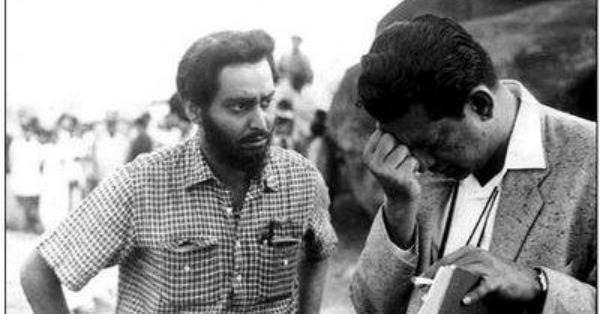
Soumitrada was a voracious reader; how did his love for literature influence his relationship with Ray?
My father had always been a voracious reader. This love and passion for literature was inculcated in him from the time he was a child – both my grandparents were passionate about literature and they transferred that love to my father. I think Satyajit Ray found a kindred spirit in my father. Both had an insatiable appetite and tremendous intellectual curiosity about literature of the world as well as Bengal, with its thriving literary culture of which both were a part of. My father had tremendous admiration for Ray’s literary prowess and was in awe of his literary heritage. Needless to say, all of us in our family read, rather devoured, whatever was published by the Ray family and we continue to keep going back to their absolutely fascinating body of work. Bapi would regularly read out his works to Ray who would give his honest opinion and discuss my father’s writings for hours on end. In fact, when my father started the little magazine Ekkshan, Manik Jethu did the lettering and designed the covers. He also designed the covers for four of Bapi’s books – Jolopropater Dharey Dnarabo Boley, Porey Achey Chandaner Cheeta, Shobdora Aamar Bagane, and Byaktigoto Nakkhatramala. Ray also designed the cover for Amader Katha by Binodini Dashi, which was edited by my father. In fact, Ray trusted Bapi enough to let him translate the foreword of Our Films Their Films into Bengali for Ekkshan.
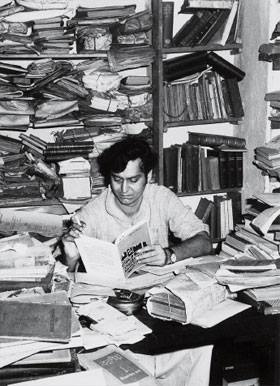
Ray had a continued interest in literary adaptations and quite a few of them starred Soumitrada. As adaptations, which ones would you rate as the best?
Satyajit Ray’s love for literature compelled him to adapt so many literary gems into brilliant cinematic works. Bapi was part of so many of these adaptations. In fact, his first film Apur Sansar was based on a classic by Bibhutibhushan Bandyopadhyay. Charulata, Aranyer Din Ratri, Ashani Sanket are very close to my heart, but Apur Sansar remains an absolute favourite. The pages of Bibhutibhushan’s novel came alive. An achingly poignant film, it kept the world enthralled. I still feel overwhelmed when I watch it and I have to say there won’t be another Apu like Soumitra Chatterjee ever again. He personified the turbulence of that period, the angst of the youth belonging to that time and that particular social milieu. Apu and Aparna’s was the most romantic, tender love story ever. It’s my favorite adaptation because it remained true to the novel but added to it as well.
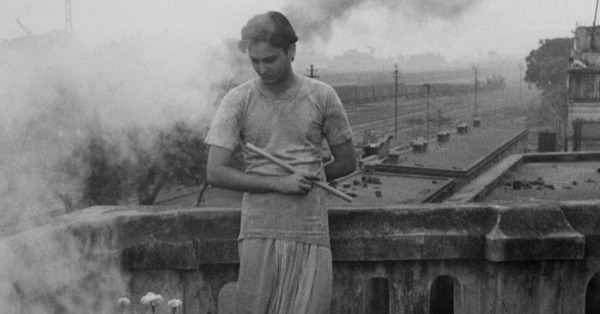
Sharmila Tagore in an article recently observed that Ray was making films for budgets that were a fraction of what Bergman and others worked with. How do you think he would have worked with larger financial might?
It’s true that there were budget constraints when Satyajit Ray made his films, but the level of excellence was beyond any comparison. The fact that Ray’s work was and continues to be considered as one of the best in world cinema speaks volumes of his genius. I really can’t say whether this brilliance could have been topped if his budget was doubled. I feel Ray’s genius lies in the fact that he produced work of such magnificence in spite of these constraints. In fact, I feel all this made Ray “RAY”.
Coming back to your own personal memories of Ray, tell us about his interactions with your father. Did they discuss films? Your dad’s other films, for example? Any anecdotes?
Manik Jethu and my father interacted with each other on a regular basis. Even when they were not working together, my father would drop in at his Bishop Lefroy Road residence almost every Sunday. When I was really young, I would tag along but as I started growing up, Sundays were reserved for my dance classes at Kalamandalam and my brother had his violin lessons at the Calcutta School of Music. Once we were all back home, Bapi would share his conversations with Manik Jethu and we would all listen mesmerized. They discussed almost everything under the sun, especially films, literature and music. Conversations with Manik Jethu had a profound effect on my father and indirectly, on the rest of our family. Manik Jethu took a keen interest in the films that Bapi was acting in with other directors. He guided Bapi in ways that a mentor would. A particular anecdote describes this perfectly. Once, early in his film career, Bapi had gone over and learnt that Manik Jethu had watched a film of Bapi’s which Bapi thought did not merit much thought or discussion. I forget which film it was but it was a typical masala entertainer. Manik Jethu asked Bapi that Soumitra, you didn’t concentrate in the film nor did you work hard. Now, why is that? Bapi replied that he didn’t find the film worth it. Manik Jethu told Bapi, “You are a professional actor and it is your duty to give your best in whatever you do. Don’t be judgmental and whatever you do, you must do it to the best of your abilities.” My father was suitably chastened and remembered this for the rest of his life. When people asked him how do you act in such silly commercial potboilers and manage to do them so seriously, he always replied, “I’m a professional actor.” He had learnt a valuable lesson from Manik Jethu that day and it served him so well throughout his career.
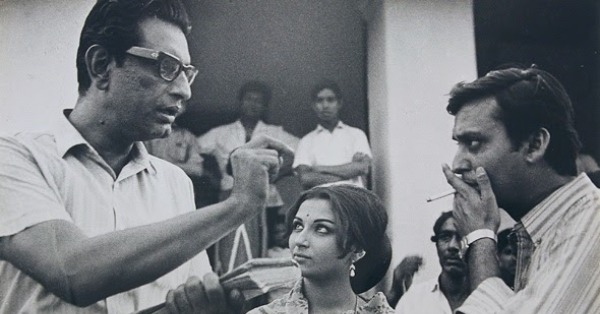
Theatre and Ray: how interested was he in theatre? Many of his actors also were hugely successful on stage. Did he have discussions on theatre?
As far as I know, Manik Jethu was very interested in theatre. He had gone to watch the legendary Sisir Kumar Bhaduri with my father and was mesmerized by his performance. Manik Jethu had come to watch quite a few of my father’s plays but I really don’t know if they had any discussions on theatre. They must have had, since my father was a regular on stage. Many of Manik Jethu’s short stories are based on theatre, many characters featured in the short stories are theatre actors, many characters are make-up artists in theatres. So, I suppose he was fascinated by this art form too.
Ray as we see him today: what do you think the centenary offers us? Should there be more cinema from his work? Netflix is doing four films and others too are planning adaptations of his stories.
This is the perfect time to rediscover Satyajit Ray, to explore his work with renewed vigour. I’m a huge fan of his writing. His short stories, though primarily meant for children and young adults, continue to fascinate all age groups … generation after generation. It’s time to rediscover and once again embrace the quintessential Bengali ethos that he depicted so wonderfully through his short stories. We seem to be losing sight of what’s important and are becoming impatient, aggressive and judgmental. Satyajit Ray’s short stories speak to us of a different world – a kinder, more tolerant. gentler world. I think it’s absolutely fantastic that his stories are being interpreted by young filmmakers. More such filmmakers, writers, artistes should come forward and look at Satyajit Ray from a different perspective.
There is talk of a Ray Museum. What would you put into a Ray museum if you had to curate it? As a country, is it important to encourage a sense of history?
It’s a wonderful idea to have a Ray Museum. Apart from being a legendary director, Ray was an excellent writer, illustrator, graphic designer, calligrapher, set designer, music composer and a firm film critic. It’s important for us to know about him thoroughly – his family heritage, his influences – in order to understand and appreciate his work even more. As a society, we should preserve our history. Otherwise, how will we learn and move forward? Our history defines us, shapes us to be who we are. Our history should be preserved to further develop our culture and fight ignorance. And what better way to do that than by preserving the works of a multifaceted genius like Ray?
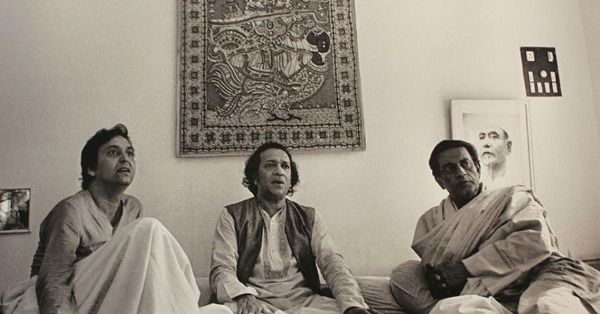
What would I put if I were to curate the museum? There would be too many things… where would I start? I don’t know… It’s a mammoth task. A huge, huge project to cover all the aspects of a genius named Ray. I wish the curator all the best as I wait eagerly for it to take shape.
Finally, Soumitrada has often mentioned feeling bereft at the passing of Ray. With his own demise, would you say that a special period of Bangla cinema, literature and theatre, of which they were both torchbearers is finally over?
A huge void has been created with the passing of my father. Satyajit Ray’s demise had already created an empty space in our social and cultural firmament. Now, there seems no one left to look up to or idolise… Both Manik Jethu and Bapi left an indelible impression in the world of cinema, theatre, literature art. This is a feat most uncommon. Usually, people excel in any particular field but these two quintessential Bengali bhadroloks left an indelible mark on the Bengali social and cultural history with their multi-talented personas. This void will be felt by generations to come, I feel. The depth and expanse of their knowledge is hard to come by. Two truly Renaissance men are no more and sadly, no one seems able enough to fill their shoes any time soon.
